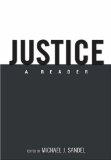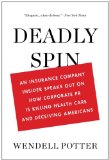Summary | Excerpt | Reading Guide | Reviews | Beyond the book | Read-Alikes | Genres & Themes | Author Bio

What's the Right Thing to Do?
by Michael J. SandelMichael J. Sandel's "Justice" course is one of the most popular and influential at Harvard. Up to a thousand students pack the campus theater to hear Sandel relate the big questions of political philosophy to the most vexing issues of the day. Justice offers readers the same exhilarating journey that captivates Harvard students.
What are our obligations to others as people in a free society? Should government tax the rich to help the poor? Is the free market fair? Is it sometimes wrong to tell the truth? Is killing sometimes morally required? Is it possible, or desirable, to legislate morality? Do individual rights and the common good conflict?
Michael J. Sandel’s “Justice” course is one of the most popular and influential at Harvard. Up to a thousand students pack the campus theater to hear Sandel relate the big questions of political philosophy to the most vexing issues of the day, and this fall, public television will air a series based on the course. Justice offers readers the same exhilarating journey that captivates Harvard students. This book is a searching, lyrical exploration of the meaning of justice, one that invites readers of all political persuasions to consider familiar controversies in fresh and illuminating ways. Affirmative action, same-sex marriage, physician-assisted suicide, abortion, national service, patriotism and dissent, the moral limits of markets—Sandel dramatizes the challenge of thinking through these conflicts, and shows how a surer grasp of philosophy can help us make sense of politics, morality, and our own convictions as well. Justice is lively, thought-provoking, and wise—an essential new addition to the small shelf of books that speak convincingly to the hard questions of our civic life.
In pushing us to track the movements of our own moral compasses, Sandel lays out before us a cavalcade of conundrums, many based on real-life events, and forces us to arrive at our own decisions about the correct course of action. Pondering these hypothetical scenarios is all the more compelling because Sandel offers a working vocabulary of right and wrong based on the competing principles of liberty, equality and fairness. Not only that, he manages to present solid arguments both for and against the positions he considers, placing the burden squarely on the reader to make up his or her own mind...continued
Full Review
(579 words)
This review is available to non-members for a limited time. For full access,
become a member today.
(Reviewed by Micah Gell-Redman).
Justice on PBS
Sandel's writing style bears the unmistakable imprint of an accomplished teacher and lecturer. While reading certain passages you can almost see him pacing beside the lectern, pausing to give emphasis to a particular thought or casting his eyes over the audience in search of a willing volunteer for questioning. Interested readers can now take a seat in the lecture hall alongside Harvard College students, thanks to a 2009 PBS lecture series.
You can access the complete episodes, plus a wealth of related material on the series website: justiceharvard.org
Here's a preview:
This "beyond the book" feature is available to non-members for a limited time. Join today for full access.

If you liked Justice, try these:

by Libby Copeland
Published 2021
A deeply reported look at the rise of home genetic testing and the seismic shock it has had on individual lives.

by Wendell Potter
Published 2011
In Deadly Spin, Potter takes readers behind the scenes to show how a huge chunk of our absurd healthcare spending actually bankrolls a propaganda campaign and lobbying effort focused on protecting one thing: profits
It is a fact of life that any discourse...will always please if it is five minutes shorter than people expect
Click Here to find out who said this, as well as discovering other famous literary quotes!